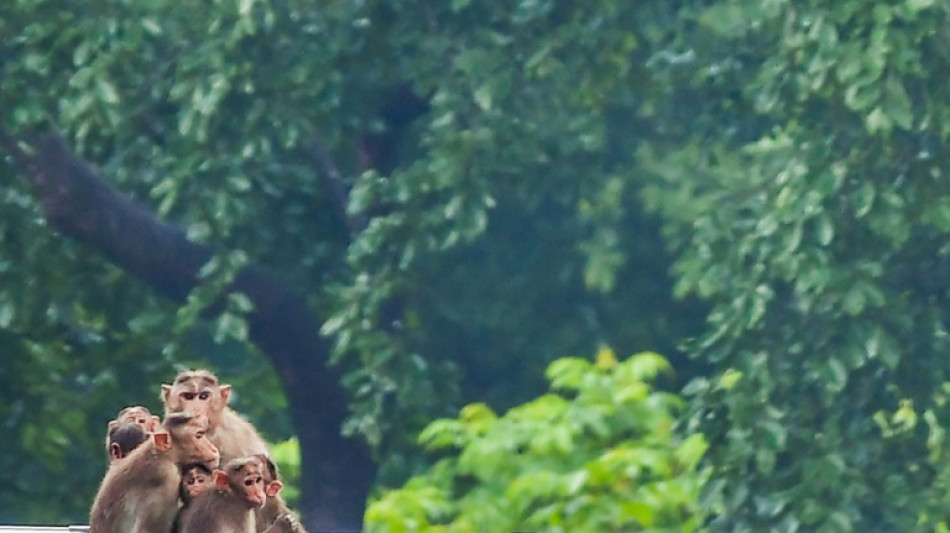
-
 Powerhouse Gyokeres can give Arsenal missing edge
Powerhouse Gyokeres can give Arsenal missing edge
-
Britain leads calls for airdrops as Gaza hunger crisis deepens

-
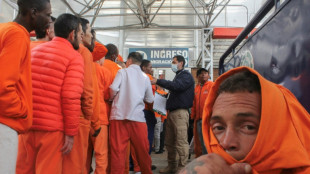 Ecuador deports more than 800 Colombian inmates as Bogota cries foul
Ecuador deports more than 800 Colombian inmates as Bogota cries foul
-
Arsenal sign Swedish international Viktor Gyokeres

-
 Spain's pioneers 'knocking down walls' with run to Euro 2025 final
Spain's pioneers 'knocking down walls' with run to Euro 2025 final
-
Greece asks for EU help in battling wildfires

-
 Rahul and Gill frustrate England in fourth Test after Stokes century
Rahul and Gill frustrate England in fourth Test after Stokes century
-
Norris reassured by pole after Belgian Grand Prix 'worries'
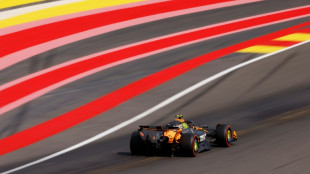
-
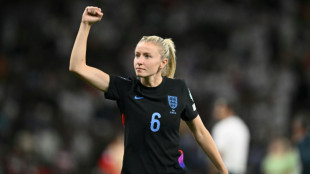 England ready to meet challenge of 'fantastic' Spain in Euro 2025 final
England ready to meet challenge of 'fantastic' Spain in Euro 2025 final
-
US migrant raids spark boom for private detention providers

-
 'Make America Gay Again': Amsterdam pride gets political
'Make America Gay Again': Amsterdam pride gets political
-
Over 600 malnourished children die in six months in Nigeria: MSF

-
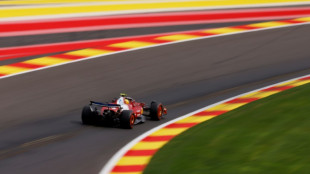 Hamilton holds hands up after 'unacceptable' qualifying
Hamilton holds hands up after 'unacceptable' qualifying
-
Norris on pole as McLaren lock-out front row at Belgian Grand Prix
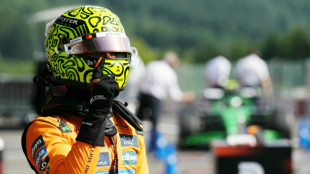
-
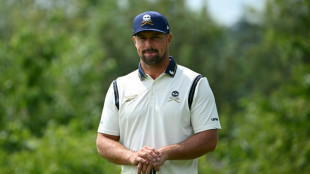 Johannesburg to host first LIV Golf event in Africa
Johannesburg to host first LIV Golf event in Africa
-
Pogacar on cusp of fourth Tour title as Groves solos to stage 20 win

-
 Motor rally accident kills three spectators in France
Motor rally accident kills three spectators in France
-
Lando Norris claims pole for Belgian Grand Prix
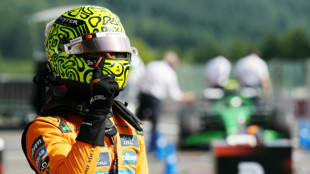
-
 'Famine', 'starvation': the challenges in defining Gaza's plight
'Famine', 'starvation': the challenges in defining Gaza's plight
-
Stokes ends two-year wait for Test hundred before Gill holds firm for India

-
 Australian Groves wins penultimate Tour stage, Pogacar in yellow
Australian Groves wins penultimate Tour stage, Pogacar in yellow
-
Root has no interest in Tendulkar run-record hype

-
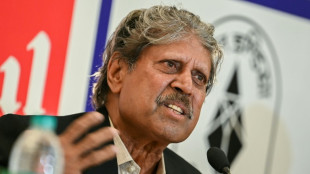 Too early to judge Gill and his young India team, says Dev
Too early to judge Gill and his young India team, says Dev
-
Liverpool beaten 4-2 by AC Milan in Hong Kong pre-season friendly

-
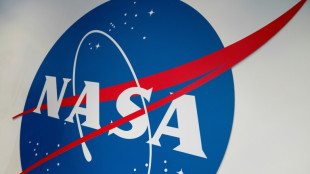 NASA says it will lose about 20 percent of its workforce
NASA says it will lose about 20 percent of its workforce
-
Farrell says win over Australia 'what dreams are made of'

-
 Trump plays golf in Scotland as protesters rally
Trump plays golf in Scotland as protesters rally
-
Stokes ends two-year wait for Test hundred before India collapse in fourth Test

-
 Lions stage stunning comeback to beat Wallabies and win series
Lions stage stunning comeback to beat Wallabies and win series
-
Taiwanese voters reject attempt to recall opposition lawmakers
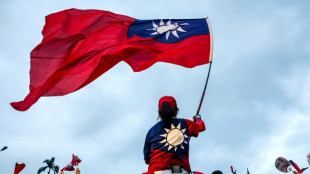
-
 Thai-Cambodia clashes spread along frontier as death toll rises
Thai-Cambodia clashes spread along frontier as death toll rises
-
Stokes ends two-year wait for Test hundred as England press for India series win

-
 Liverpool to remember Jota with permanent tribute
Liverpool to remember Jota with permanent tribute
-
'We are neighbours': fleeing Thais and Cambodians call for peace

-
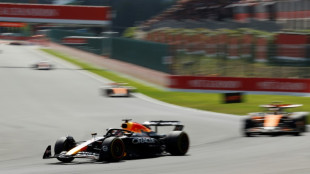 Verstappen begins new Red Bull era with Belgian sprint win
Verstappen begins new Red Bull era with Belgian sprint win
-
French left urges Macron to act over US plan to destroy contraceptives
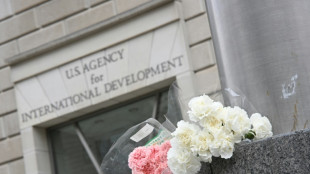
-
 Howe confident Isak will stay at Newcastle despite transfer talk
Howe confident Isak will stay at Newcastle despite transfer talk
-
Top seed Fritz falls as Raducanu and Fernandez win at DC Open
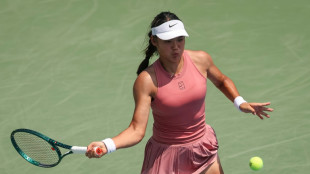
-
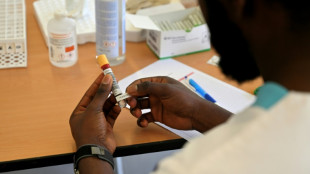 Belgian region grapples with forever chemical scandal
Belgian region grapples with forever chemical scandal
-
New-look Australia focused on LA 2028 at swimming worlds
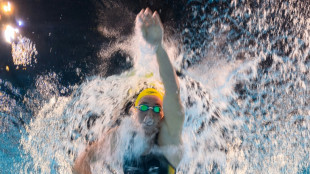
-
 China urges global consensus on balancing AI development, security
China urges global consensus on balancing AI development, security
-
David's century sparks Aussies to T20I clincher over WIndies

-
 Death toll rises in Thai-Cambodian clashes despite ceasefire call
Death toll rises in Thai-Cambodian clashes despite ceasefire call
-
Taiwan votes in high-stakes recall election
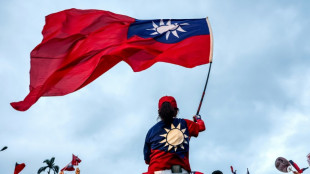
-
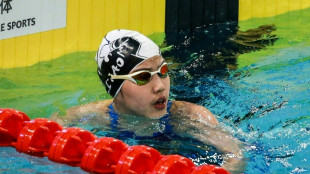 China prodigy takes on swimming world aged 12
China prodigy takes on swimming world aged 12
-
UN gathering eyes solution to deadlocked Palestinian question

-
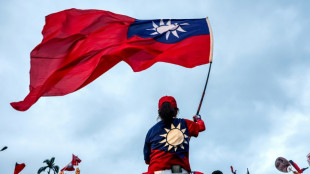 Polls open in Taiwan's high-stakes recall election
Polls open in Taiwan's high-stakes recall election
-
4 Steps to Budget When Living on Your Own in Lafayette, LA

-
 'Alien' lands at Comic-Con
'Alien' lands at Comic-Con
-
Top footballers afraid to speak out against playing too many games: FIFPro chief

| RBGPF | -1.52% | 73.88 | $ | |
| SCS | 0.66% | 10.58 | $ | |
| NGG | -0.11% | 72.15 | $ | |
| RELX | -1.86% | 52.73 | $ | |
| BP | 0.22% | 32.2 | $ | |
| RYCEF | -0.3% | 13.2 | $ | |
| GSK | -0.68% | 37.97 | $ | |
| CMSC | 0.24% | 22.485 | $ | |
| BCC | 1.94% | 88.14 | $ | |
| BTI | -0.71% | 52.25 | $ | |
| SCU | 0% | 12.72 | $ | |
| CMSD | 0.17% | 22.89 | $ | |
| BCE | -0.95% | 24.2 | $ | |
| VOD | -0.79% | 11.43 | $ | |
| AZN | -1.4% | 72.66 | $ | |
| JRI | -0.46% | 13.09 | $ | |
| RIO | -1.16% | 63.1 | $ |

Controversial monkey study reignites animal testing debate
Mother monkeys permanently separated from their newborns sometimes find comfort in plush toys: this recent finding from Harvard experiments has set off intense controversy among scientists and reignited the ethical debate over animal testing.
The paper, "Triggers for mother love" was authored by neuroscientist Margaret Livingstone and appeared in the Proceedings of the National Academy of Sciences (PNAS) in September to little fanfare or media coverage.
But once news of the study began spreading on social media, it provoked a firestorm of criticism and eventually a letter to PNAS signed by over 250 scientists calling for a retraction.
Animal rights groups meanwhile recalled Livingstone's past work, that included temporarily suturing shut the eyelids of infant monkeys in order to study the impact on their cognition.
"We cannot ask monkeys for consent, but we can stop using, publishing, and in this case actively promoting cruel methods that knowingly cause extreme distress," wrote Catherine Hobaiter, a primatologist at the University of St Andrews, who co-authored the retraction letter.
Hobaiter told AFP she was awaiting a response from the journal before further comment, but expected news soon.
Harvard and Livingstone, for their part, have strongly defended the research.
Livingstone's observations "can help scientists understand maternal bonding in humans and can inform comforting interventions to help women cope with loss in the immediate aftermath of suffering a miscarriage or experiencing a still birth," said Harvard Medical School in a statement.
Livingstone, in a separate statement, said: "I have joined the ranks of scientists targeted and demonized by opponents of animal research, who seek to abolish lifesaving research in all animals."
Such work routinely attracts the ire of groups such as People for the Ethical Treatment of Animals (PETA), which opposes all forms of animal testing.
This controversy has notably provoked strong responses in the scientific community, particularly from animal behavior researchers and primatologists, said Alan McElligot of the City University of Hong Kong's Centre for Animal Health and a co-signer of the PNAS letter.
He told AFP that Livingstone appears to have replicated research performed by Harry Harlow, a notorious American psychologist, from the mid-20th century.
Harlow's experiments on maternal deprivation in rhesus macaques were considered groundbreaking, but may have also helped catalyze the early animal liberation movement.
"It just ignored all of the literature that we already have on attachment theory," added Holly Root-Gutteridge, an animal behavior scientist at the University of Lincoln in Britain.
- Harm reduction -
McElligot and Root-Gutteridge argue the case was emblematic of a wider problem in animal research, in which questionable studies and papers continue to pass institutional reviews and are published in high impact journals.
McElligot pointed to a much-critiqued 2020 paper extolling the efficiency of foot snares to capture jaguars and cougars for scientific study in Brazil.
More recently, experiments on marmosets that included invasive surgeries have attracted controversy.
The University of Massachusetts Amherst team behind the work says studying the tiny monkeys, which have 10-year-lifespans and experience cognitive decline in their old age, are essential to better understand Alzheimers in people.
Opponents argue results rarely translate across species.
When it comes to testing drugs, there is evidence the tide is turning against animal trials.
In September, the US Senate passed the bipartisan FDA Modernization Act, which would end a requirement that experimental medicines first be tested on animals before any human trials.
The vast majority of drugs that pass animal tests fail in human trials, while new technologies such as tissue cultures, mini organs and AI models are also reducing the need for live animals.
Opponents also say the vast sums of money that flow from government grants to universities and other institutes -- $15 billion annually, according to watchdog group White Coat Waste -- perpetuate a system in which animals are viewed as lab resources.
"The animal experimenters are the rainmaker within the institutions, because they're bringing in more money," said primatologist Lisa Engel-Jones, who worked as a lab researcher for three decades but now opposes the practice and is a science advisor for PETA.
"There's financial incentive to keep doing what you've been doing and just look for any way you can to get more papers published, because that means more funding and more job security," added Emily Trunnel, a neuroscientist who experimented on rodents and also now works for PETA.
Most scientists do not share PETA's absolutist stance, but instead say they adhere to the "three Rs" framework -- refine, replace and reduce animal use.
On Livingstone's experiment, Root-Gutteridge said the underlying questions might have been studied on wild macaques who naturally lost their young, and urged neuroscientists to team up with animal behaviorists to find ways to minimize harm.
D.Sawyer--AMWN


